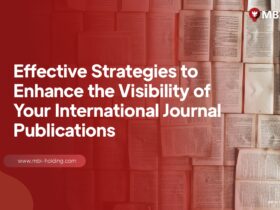Publishing research in international journals is a significant achievement for researchers and academics. However, apart from producing high-quality research, it is essential to undergo the publication process with high integrity and ethics. In this article, we will explore the ethics of authors and best practices to be followed when publishing your work in international journals.
1. Honesty and Accuracy in Writing
Integrity is key in author ethics. Ensure that all the information in your article is honest and accurate. Avoid plagiarism by properly citing sources and giving due credit to relevant prior research.
2. Clear Authorship Attribution
Include a clear and accurate list of authors in your article. Authors who significantly contributed to the research should be acknowledged. Avoid adding authors who did not make substantial contributions.
3. Conflict of Interest
Honestly disclose any potential conflicts of interest that might affect your research. This could be financial conflicts, personal relationships, or affiliations with organizations that have an interest in your research.
4. Peer Review
Submitting articles to international journals often involves a peer review process, where your article is evaluated by experts in the field. Respect and accept feedback from reviewers with an open attitude. Do not attempt to unethically influence the outcome of peer review.
5. Journal Policies
Familiarize yourself with the policies and guidelines of the journal where you intend to publish your research. Each journal has different rules regarding writing format, article structure, and the peer-review process. Make sure to adhere to the provided guidelines.
6. Copyright and Licensing
Understand the copyright and licensing applicable to your article. Some journals use open licenses that allow wider dissemination, while others may have copyright restrictions. Ensure compliance with the relevant guidelines.
7. Research Data
Share your research data whenever possible. Transparency in sharing research data can enhance the transparency and reproducibility of your research.
8. Ethical Compliance
Ensure that your research complies with ethical standards relevant to your field. This includes the protection of human research subjects, animal care, and experimental ethics.
9. Acknowledgment of Other Contributions
If you use materials created by others, such as images or tables, make sure to give proper credit to the owners by including citations or obtaining necessary permissions.
10. Openness to Corrections and Retractions
If there are errors or serious issues in your research, make corrections or, if necessary, retract the work. This is part of the author’s ethical responsibility to ensure that published research is the most accurate and honest representation of your work.
By adhering to author ethics and best practices, you will ensure that your research is professionally respected and makes a positive contribution to the academic world. Good ethics in writing are the foundation of academic integrity and your reputation as a researcher.







Leave a Reply